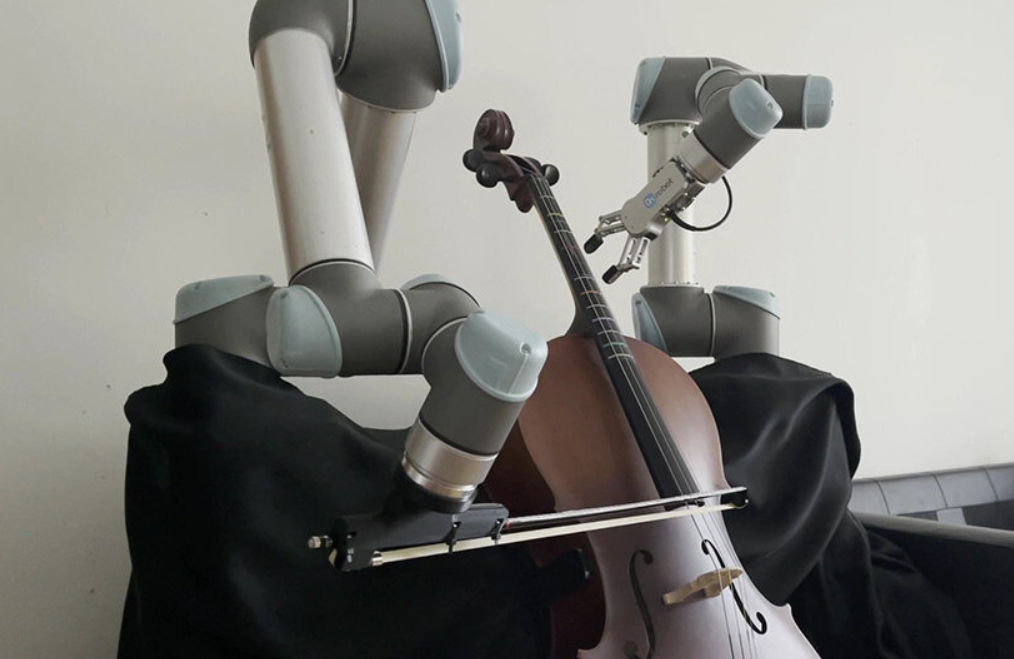Introduction
In the evolving landscape of music creation, Mubert stands out as a pioneering platform that leverages artificial intelligence to generate unique, royalty-free music in real-time. Whether you're a content creator, developer, or music enthusiast, understanding how Mubert works can open new avenues for your projects.

What Is Mubert?
Mubert is an AI-powered music generator that creates endless streams of music tailored to specific moods, genres, and user inputs. By analyzing vast datasets of music samples, Mubert's algorithms produce non-repetitive, adaptive soundtracks suitable for various applications, from video content to app development.
Explore: Mubert Review 2025: Pros, Cons, Pricing
How Does Mubert Work?
1. AI-Driven Music Generation
At its core, Mubert utilizes machine learning algorithms trained on extensive libraries of music samples. When a user selects parameters like genre, mood, or tempo, Mubert's AI composes a unique track that aligns with these specifications, ensuring each piece is distinct and tailored.
2. Real-Time Composition
Unlike traditional music tracks, Mubert's compositions are generated in real-time. This means the music adapts dynamically, providing an infinite stream without loops or repeats, ideal for applications requiring continuous background music.
3. User Interaction and Customization
Users can interact with Mubert through various interfaces, such as the Mubert Render platform, where they can input specific criteria to generate music. Additionally, Mubert offers APIs for developers to integrate its music generation capabilities into their own applications.
Key Features of Mubert
- Mubert Render
A user-friendly interface allowing content creators to generate music by selecting desired moods, genres, and durations. It's particularly useful for producing soundtracks for videos, podcasts, and other media.
- Mubert API
Provides developers with the tools to incorporate Mubert's music generation into their own platforms, enabling dynamic music creation within apps, games, or websites.
- Mubert Studio
A platform for musicians to contribute their own samples and loops, which Mubert's AI can then use to generate new compositions. Contributors can earn royalties when their samples are utilized.
Pros and Cons of Using Mubert
Pros:
Royalty-Free Music: All tracks generated are free from copyright issues, making them safe for commercial use.
Customization: Users can tailor music to specific needs, selecting from various moods, genres, and tempos.
Real-Time Generation: Music is created on-the-fly, ensuring uniqueness and adaptability.
Developer-Friendly: APIs allow for seamless integration into various platforms.
Cons:
Limited Artistic Control: While customization is available, users seeking highly specific compositions might find the generative approach less flexible.
Internet Dependency: An active internet connection is required for music generation and streaming.
Subscription Tiers: Advanced features and higher-quality renders are available only through paid plans.
Practical Applications of Mubert
Content Creation: Ideal for YouTubers, podcasters, and filmmakers needing background music.
App Development: Enhance user experience with adaptive soundtracks in apps and games.
Marketing: Create unique audio branding for advertisements and promotional materials.
Personal Use: Generate music for relaxation, study, or personal projects.
Key Takeaways
Innovative Approach: Mubert revolutionizes music creation by combining AI with vast music samples to produce unique tracks.
Versatility: Suitable for a wide range of applications, from content creation to app development.
Accessibility: Offers both free and paid plans, catering to different user needs.
Integration: APIs and platforms like Mubert Studio expand its usability across various domains.
FAQs
Q1: Can I use Mubert's music for commercial projects?
Yes, Mubert's generated music is royalty-free and can be used in commercial projects, provided you adhere to their licensing agreements.
Q2: Do I need to download software to use Mubert?
No, Mubert operates through web-based platforms and APIs, eliminating the need for software downloads.
Q3: Is there a free version of Mubert?
Yes, Mubert offers a free tier with limited features, suitable for personal use and exploration.
Q4: Can I contribute my own music samples to Mubert?
Yes, through Mubert Studio, musicians can upload their samples, which the AI can use to generate new tracks.
Q5: Does Mubert offer support for developers?
Absolutely, Mubert provides APIs and documentation to assist developers in integrating its music generation capabilities into their applications.
Conclusion
Mubert represents a significant advancement in AI-driven music generation, offering versatile solutions for various users, from content creators to developers. By understanding how Mubert works, you can harness its capabilities to enhance your projects with unique, royalty-free music.
Learn more about AI MUSIC TOOLS








